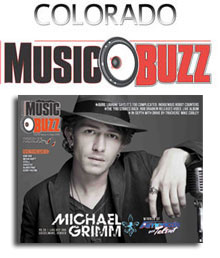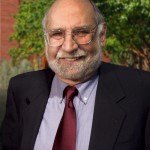Why Jazz Matters: Track 6
by Norman Provizer
Sankofa is a term from the Akan people of southern Ghana and the neighboring West African states of Cote d’Ivoire (Ivory Coast) and Togo. Essentially, the term means that you need to reclaim your past before you can move ahead. It’s an idea frequently symbolized by a bird that is looking backward while moving forward.
With that idea in mind, the Department of Africana Studies at Metropolitan State University of Denver launched a Sankofa Lecture series in 2012 – a series focusing on the impact and importance of hip hop not only in music, but in modern culture as well. The driving force behind the Sankofa event is B. Afeni McNeely Cobham, a professor of Africana Studies at MSU Denver. She teaches a class on hip hop at the university and refers to the series as “an extension” of that course, created in response to the desire of students to have added exposure to the subject beyond the course.
On September 24 and 25, the 2014 edition of that series, titled “Social Action Through the Art of Hip Hop,” takes place in St. Cajetan’s on the Auraria campus with the Dead Prez duo of Stic.man and M-1 providing the keynote address on the 25th at 12:30 p.m. At 9:30 p.m. on the 25th, there’s a panel discussion on “Music, Politics & Hip Hop: A Soundtrack for Social Change,” followed by a Resource Fair at 11 a.m. prior to the keynote. Before those activities take place, there’ a screening of the film “Black and Cuba” on the 24th at 5 p.m.
Then things wind up on the night of the 25th with an “After Set” at Hi-Dive, 7 S. Broadway, with featured guest Phife Dawg, one of the founders of A Tribe Called Quest, and others providing the sounds. As Professor Cobham notes, “How can you a hip-hop event without a party?” Except for that party at the Hi-Dive that has a $10 cover, all of the Sankofa activities are free and you can RSVP on Facebook at http://tinyutl.com/m27jhct.
When the Kennedy Center honored Herbie Hancock in 2013, Snoop Dogg (who will be in Denver in October) thanked the great jazz pianist for “inventing hip hop,” referring to Hancock’s “Rockit” recording from 1983. And it was hip-hop artist Nas who explained that, “Hip hop is like one of the children of jazz.” The jazz-hip hop connection is real and is also a two-way street. Samples drawn from jazz albums abound on hip-hop recordings; and younger jazz players such as pianist Robert Glasper have integrated hip-hop sounds into their own music.
Additionally, the great jazz bassist Ron Carter was in the studio with A Tribe Called Quest on the group’s second CD, Low End Theory. Carter also appears with M.C. Solaar on “Un Ange en Danger” included in the five-disc companion to Ken Burns’ series on PBS, Jazz: The Story of America’s Music. And the four volumes of Guru’s Jazzmatazz series (released from 1993 through 2007) feature a host of notable jazz players, not just their samples.
An example of all this is guitarist Kurt Rosenwinkel who is frequently called the most influential jazz guitarist of his generation. The Philadelphia-born player was in Denver with his New Quartet that included Denver-raised drummer Colin Stranahan. After the band’s two-night stand at Dazzle, Rosenwinkel talked about the link between jazz and hip hop in his own career. After all, Q-Tip (another founder of A Tribe Called Quest) co-produced one of Rosenwinkel’s CDs while Rosenwinkel did the same for Q-Tip along with performing on the Tip’s recordings. From Rosenwinkel’s perspective, jazz and hip hop naturally go together because deep down, despite their obvious differences in terms of musical structure, they share a common root. It’s that common root that allows the guitarist to talk about Notorious B.I.G. as someone who could swing like crazy.
Beyond hip hop, September offers a strong lineup at Dazzle with Denver-raised drummer Rudy Royston on stage on the 11th and 12th with his 303 band. Royston moved to the New York area in 2006 and has kicked up a storm on the national jazz scene, capturing the number-one spot as the rising-star drummer in this year’s DownBeat “Critics Poll.” The name of the band, of course, pays homage to his hometown. Following Royston, the number one guitarist in jazz, Bill Frisell, is at Dazzle on the 13th and 14th, paying tribute the great guitarist Jim Hall with his teacher Dale Bruning, trumpeter Ron Miles and others. Like Royston, Frisell, too, grew up in Denver.
Next at Dazzle, you can find two major saxophonists on stage. On the 26th, it’s Ravi Coltrane (the son of John Coltrane) with his quartet; and, on the 27th, its Mark Turner and his quartet. Away from Dazzle, the outstanding soprano saxophonist and flautist Jane Bunnett is at Mount Vernon Country Club in Golden on the 19th with her group of outstanding, young women musicians from Cuba. The sextet is called Maqueque (the spirit of the young girl).
At the Soiled Dove Underground, there are two crossover saxophonists on tap during the month – Harold Rapp III on the 5th and Kim Waters on the 12th. Crossover guitarist Norman Brown is also at the Dove on the 26th. And on the groove side of the music, Robert Walter’s 20th Congress is at The Other Side on the 5th and 6th and Soulive is at the Ogden on the 19th and 20th of the month.
Category: Buzzworthy2






